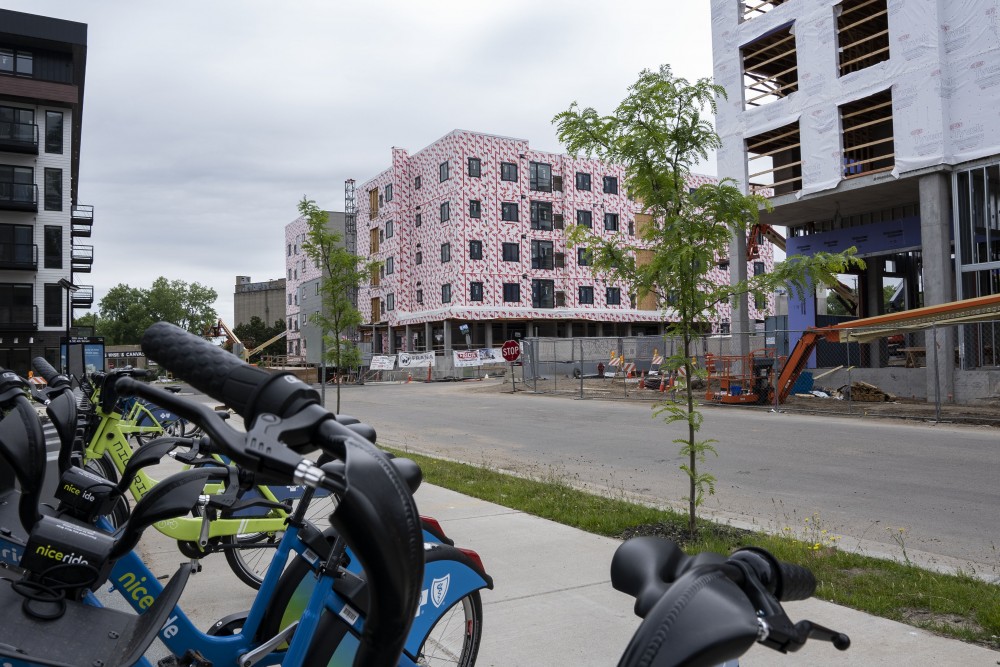Towerside Innovation District in Prospect Park is aiming to live up to its name as it begins to incorporate greener temperature control in its new developments.
As Minneapolis officials look to implement more alternative energy sources, Towerside’s Malcolm Yards project, a 17-acre field of developing land in Prospect Park, will be among the first to use groundwater to heat and cool its buildings. Last month, Towerside’s board of directors unanimously voted to begin pursuing the project with utility operator Ever-Green Energy.
Malcolm Yards will implement an aquifer thermal energy system in four new buildings. This type of energy relies on a series of wells and a piping system that move heat between buildings, heating and cooling them without releasing carbon emissions. This also negates the need for boilers, furnaces or air conditioners.
Ward 2 City Council member Cam Gordon represents the Towerside community. Gordon’s office has been working to fight climate change and the effects of fossil fuel emissions at the city level for years, said Ward 2 policy aide Robin Garwood.
“We have been trying to take aggressive action to deal with climate change, to mitigate it, to reduce the carbon emissions that are coming from Minneapolis, and it has become clear recently that natural gas is now actually one of the greatest single [sources] of carbon emissions,” Garwood said.
Nina Axelson, vice president of sustainability and outreach for Ever-Green Energy, said aquifer energy has not taken off in the United States. The technology has been around for decades, mostly implemented in Europe. But the market for systems that reduce carbon emissions is growing in the U.S. as pressures to combat climate change increase, she said.
Aquifer technology is usually owned and controlled by the people who use the energy, as opposed to each city’s heating and cooling supply being controlled by a single energy company, Garwood said. This alternative energy is as or less expensive than traditional energy and will not fluctuate in pricing over time, he said.
As an innovation district, Towerside’s goal is to be a model for self-operating alternative energy for the rest of the country, said Tracy Nordstrom, president of Towerside Innovation District.
“[Resilience] is literally our middle name, as we work to have a district energy system that allows us to be resilient,” Nordstrom said. “It decentralizes our ability to heat and cool our homes and our businesses, and if there’s a disruption to the big main system, the community itself can still survive.”
As climate change becomes a bigger issue, Axelson anticipates more developments will implement carbon-free temperature control systems.
“I think we are going to see a lot more development in this type of technology. Not necessarily always aquifer, but the technologies that are going to take the carbon out of the heating-cooling side of uses and buildings in Minnesota,” Axelson said.
The project’s developers will need approval from the City Council in the coming months to proceed with the design phase, Nordstrom said.














